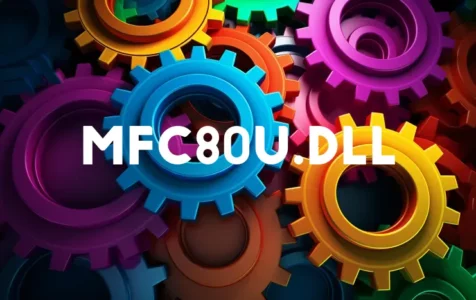The Essentials of Mfc80.dll and Mfc80u.dll Files
When delving into the digital building blocks of a Windows-based system, we often come across various types of files essential for running different applications smoothly. Among such files, the Mfc80.dll and Mfc80u.dll are significant components for users and developers working with Microsoft Windows and applications associated with Microsoft Visual Studio 2005.
What Are Mfc80.dll and Mfc80u.dll?
Both Mfc80.dll and Mfc80u.dll are modules associated with Microsoft Visual Studio 2005 and belong to the Microsoft Foundation Class (MFC) Library. They play a crucial role in the operation of applications built with Visual Studio 2005. The MFC library provides a set of functions, constants, data types, and classes to simplify creating complex applications. The ‘u’ in Mfc80u.dll denotes a Unicode version of the file, which means it can handle a wider range of character encodings.
Are Mfc80.dll and Mfc80u.dll Safe to Run?
Generally, these DLL files are safe as they are officially part of Microsoft’s application development environment. However, their safety depends on their origin. If the files have been downloaded from Microsoft or are part of a legitimate application installation, they pose no threat to the system.
Could These Files Be a Virus or Malware?
Any file, including DLL files, can potentially be a virus or malware if they’re from an unreliable source. The legitimate Mfc80.dll and Mfc80u.dll files should reside in a specific directory:
Expert Tip: For smoother PC performance, consider using a PC optimization tool. It handles junk files, incorrect settings, and harmful apps. Make sure it's right for your system, and always check the EULA and Privacy Policy.
Special offer. About Outbyte, uninstall instructions, EULA, Privacy Policy.
C:\Windows\winsxs\
If found outside this location, they could potentially be harmful. It is crucial to ensure that the files are from a trusted source and not inadvertently replaced or altered by malicious software.
Common Issues Associated with Mfc80.dll and Mfc80u.dll
A prevalent issue with these files is an application crash following an update. For example, updating the Mfc80.dll or Mfc80u.dll module from version 8.0.50727.870 to 8.0.50727.3078, as part of an installation like Microsoft SQL Server 2008, can lead to crashes in applications built with Visual Studio 2005.
How Can These Issues Be Fixed?
If you encounter an issue after updating these files, Microsoft offers a hotfix to resolve the incompatibility. This hotfix is particularly relevant for situations where applications crash due to the updated DLL version.
For computers without Visual Studio 2005, apply the Microsoft hotfix available from the MSDN Code Gallery. Ensure to select the appropriate package for your Windows architecture (x64 or x86).
If Visual Studio 2005 is installed, apply the hotfix described in KB 958036. Detailed instructions are available on the Microsoft support pages for the proper application of these hotfixes.
For general errors unrelated to the crash issue, users may follow these steps to address the problems:
1. Conduct a virus/malware scan of the computer to ensure the issue isn’t due to malicious software.
2. Reinstall the application that requires Mfc80.dll or Mfc80u.dll, which can restore the files to their correct versions.
3. If necessary, manually download and install the correct version of Microsoft Visual C++ 2005 Redistributable Package.
Community Discussions
Community discussions often reveal real-world experiences of dealing with Mfc80.dll and Mfc80u.dll issues. Users frequently seek help when they encounter error messages, crashes, or system instability due to these files. Engage with the community and tech specialists on forums like forum.dll-files.com for additional support and shared experiences.
In conclusion, while Mfc80.dll and Mfc80u.dll are crucial components of certain Windows applications, they can lead to problems if updated incorrectly or tampered with by malicious software. Ensuring these DLL files remain untouched and in their rightful locations is key to maintaining system stability. Whenever you’re in doubt, rely on official Microsoft channels for guidance and avoid downloading DLL files from unverified online sources.
